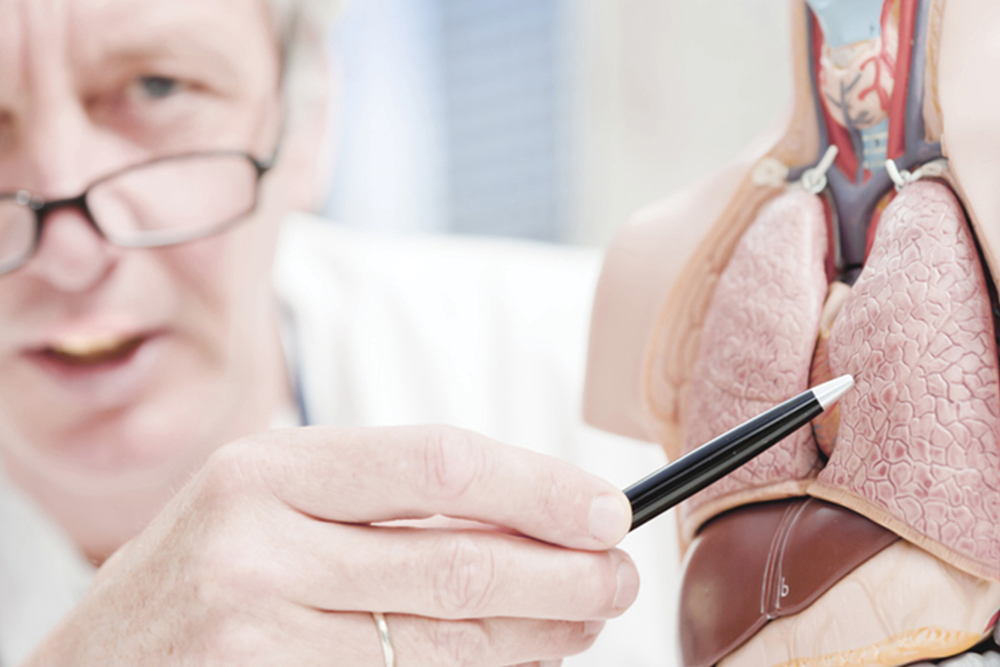An Overview of the Respiratory System:
Before we dive into the specifics of the lungs, let's first understand the basics of the respiratory system. The respiratory system consists of the organs involved in breathing, including the lungs, nose, mouth, throat, windpipe, and bronchial tubes1. When you breathe in, the diaphragm and muscles between your ribs contracts. This creates more space in the chest cavity, causing the lungs to expand. The air rushes in through the nose or mouth and down the windpipe, finally reaching the bronchial tubes. Oxygen from the inhaled air then enters the bloodstream through tiny blood vessels called capillaries2. At the same time, carbon dioxide, a waste product of metabolism, is transferred from the capillaries to the air sacs in the lungs. When you breathe out, the diaphragm and intercostal muscles relax, making the chest cavity smaller. This pushes the air out of the lungs, removing carbon dioxide from the body3.
The Structure of the Lungs:
The lungs are a pair of sponge-like organs located in the chest cavity. They are protected by the ribcage and separated by the heart. Each lung is divided into sections called lobes4, with the right lung having three lobes and the left lung having two.
Inside the lungs, there is a branching network of tubular structures called bronchial tubes5. These tubes carry the air from the windpipe into the lung's smaller air sacs called alveoli. It is within the alveoli that the gas exchange occurs – oxygen from the inhaled air enters the bloodstream, while carbon dioxide exits the bloodstream and is exhaled6.
Keeping Your Lungs Healthy:
Now that we have a basic understanding of the lung's structure and function, let's discuss some tips for maintaining their health7.
- Avoid smoking and secondhand smoke: Smoking is the leading cause of lung diseases such as lung cancer and chronic obstructive pulmonary disease (COPD). The harmful chemicals from smoking damage the lungs lining and impair their function8.
- Exercise regularly: Regular physical activity helps improve lung function by strengthening the respiratory muscles and increasing lung capacity9.
- Practice deep breathing exercises: Deep breathing exercises help expand the lungs and clear out mucus. Try diaphragmatic breathing, where you inhale deeply, allowing your belly to rise, and exhale slowly through pursed lips.
- Avoid exposure to pollutants: Try to minimize or avoid exposure to air pollutants such as smoke, chemicals, and allergens. Use air purifiers at home to improve indoor air quality and wear a mask when in heavily polluted areas.
- Stay hydrated: Drinking enough water keeps the mucosal lining of the lungs moist, facilitating easier breathing10. Aim for at least 8 cups (64 ounces) of water per day.
- Get regular check-ups: Regular check-ups for lung health can help you and your healthcare provider with symptom management, problem detection, and prompt treatment11.
Our lungs play a crucial role in keeping us alive and healthy. Understanding how they function and implementing measures to maintain their health is essential. By following the tips mentioned above and taking care of your respiratory system, you can enjoy better lung function and overall well-being. Remember, it’s never too late to start taking care of your lungs! Before starting any new diet exercise regimen, it is important to consult with your healthcare provider.
1 https://www.lung.org/lung-health-diseases/how-lungs-work
2 https://www.lung.org/lung-health-diseases/how-lungs-work
3 https://www.lung.org/lung-health-diseases/how-lungs-work
4 https://my.clevelandclinic.org/health/body/8960-lungs
5 https://my.clevelandclinic.org/health/body/21607-bronchi
6 https://www.healthline.com/health/alveoli-function
7 https://www.lung.org/blog/10-tips-for-healthy-lungs
8 https://www.cdc.gov/tobacco/data_statistics/fact_sheets/health_effects/effects_cig_smoking/index.htm#
9 https://www.lung.org/lung-health-diseases/wellness/exercise-and-lung-health#
10 https://www.lung.org/blog/10-tips-for-healthy-lungs#
11 https://www.lung.org/lung-health-diseases/wellness/protecting-your-lungs


